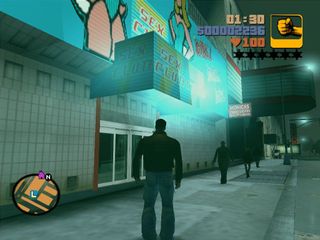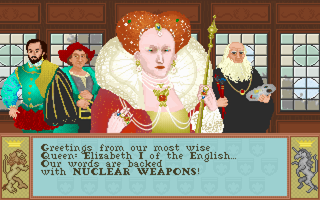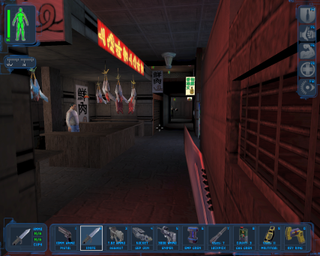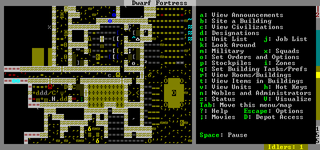The most ambitious PC games
These games strained against the technical and design limitations of PC gaming and did something that had never been done before.

Grand Theft Auto 3 (2001)
It’s easy to dismiss the sheer effort that goes into creating a city. After all, we’ve walked, run, driven and carjacked around so many. GTA 3 wasn’t even the first, with racing games in particular having set the pace. But could you get out of the racing cars and ramble? Enjoy a pumping gangster soundtrack? Run around with automatic weapons and go on missions with a huge cast of crazy characters? Just sit back and listen to an hour of talk radio? Nope. GTA III was magic, and so many sequels on, it’s still raising the bar for what virtual cities can and should be.
Give or take a few terrible cock jokes, anyway.

EVE Online (2003)
Ultima Online intended to let players call the shots. It didn’t quite work. With EVE Online however, CCP had the courage to actually let it happen, creating one of the most talked about online games of the last few years. Tales of empires at war, of con artistry on a scale that would make Count Lustig blink, the epic sagas of backstabbings and betrayals that no other game can match. CCP likes to describe EVE using the phrase “EVE is Real”, and while there may not be any starships flying distant galaxies under your favourite forum’s command, they still have a point.

Civilization (1991)
All of human history in a single game? There’s not much more to be said, really. As achievements go, the only bigger one would be making it one of the greatest games of all time. Not to cast aspersions on the likes of Elite for creating a universe in slightly fewer bytes than the average person would make in a toothpaste and peperami footlong, but the thing about space is that it is mostly empty. Just saying. The world however, in as many ways as you can imagine? That’s ambition, even if using it educationally does mostly teach people never, ever to mess with Gandhi.

Deus Ex (2000)
Real world. Real conspiracies. Where do we even begin? Deus Ex not only set out to create some of the most realistic real-world locations we’d ever seen (not a tautology—the games before hadn’t exactly done a great job most of the time), but also turn them into nothing short of a psychopath’s toolbox. Multiple paths and solutions. Characters who reacted to your decisions. Tiny decisions determining who lives and who dies. All wrapped in some of the best writing and wrapping the PC had known up to this point. There’s a reason why so many years on, it’s the original Deus Ex that still stands out as both one of the greatest games ever, and the template of a dream for future immersive simulators to study at the feet of as they try to surpass it.

Dwarf Fortress (2006)
Simulations don’t get any deeper than this. Literally, or figuratively. Dwarf Fortress—or to give it its full title, SLAVES TO ARMOK: GOOD OF BLOOD, CHAPTER II: DWARF FORTRESS—is an ASCII gem best summed up by its creator saying in 2011 that we shouldn’t expect version 1.0 for at least twenty years. That’s what you get in a game so crazily detailed that a cat can go into a tavern, pick up spilled alcohol on its paws, wash itself off, and get drunk. This was never intended behaviour, just the sum of smaller sub-routines coming together and making their own reality. In retrospect, that twenty years to ‘complete’ doesn’t sound so much at all.
PC Gamer Newsletter
Sign up to get the best content of the week, and great gaming deals, as picked by the editors.
Most Popular

